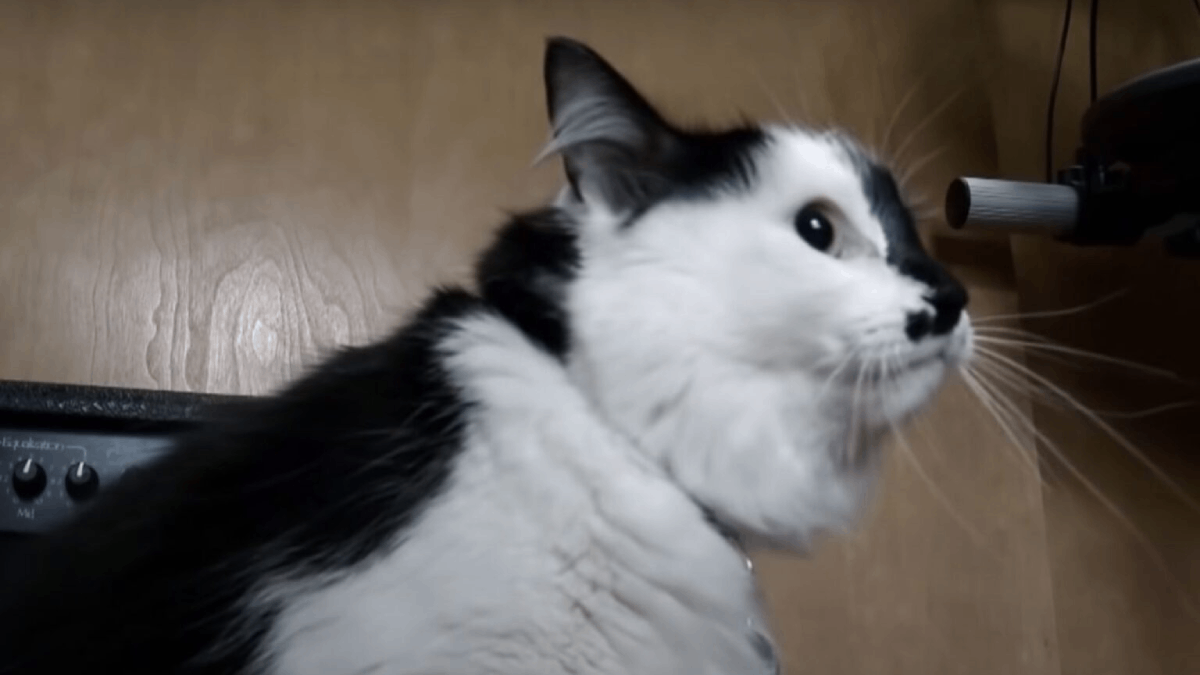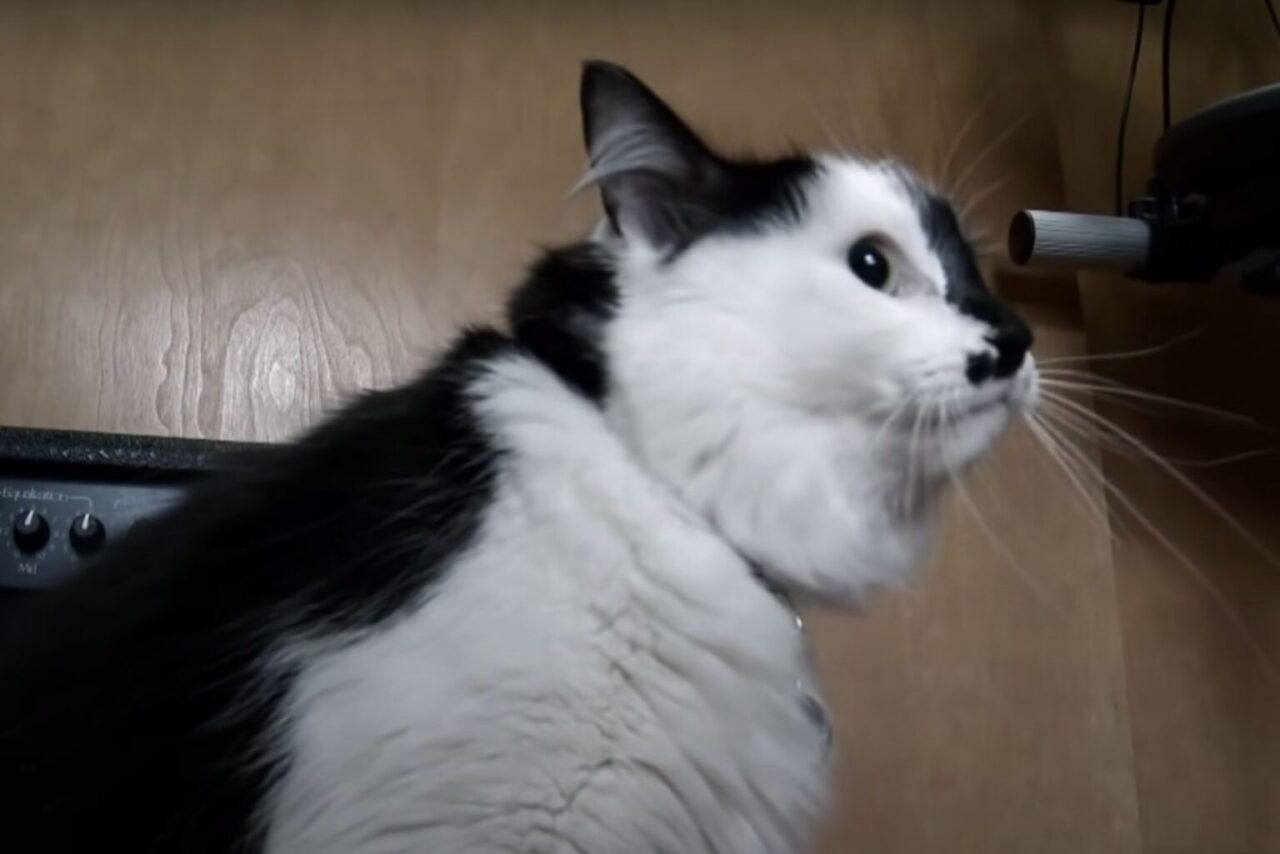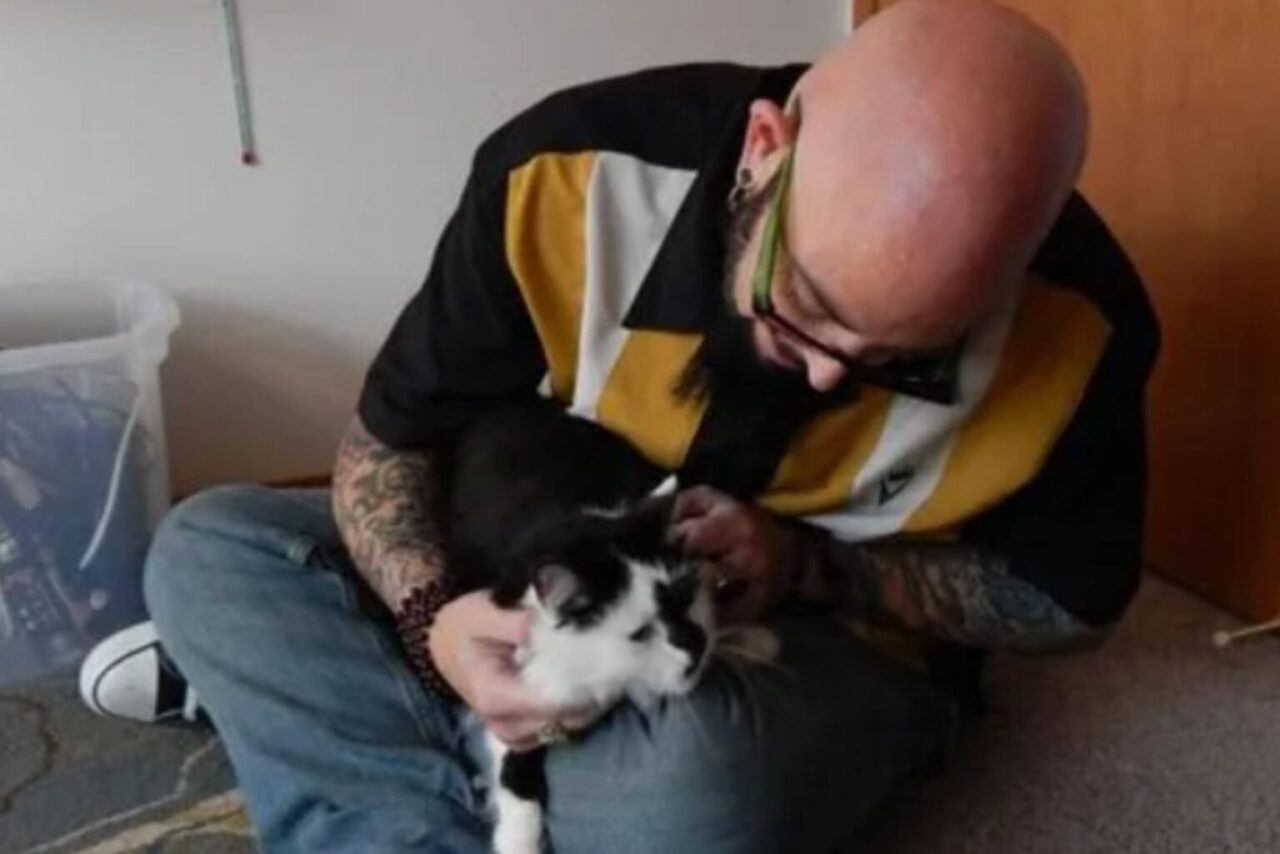In an unusual and unsettling turn of events, a Portland, Oregon family recently faced a situation that no pet owner ever hopes to encounter. Their 22-pound Himalayan cat, Lux, who had long been a calm and beloved companion, suddenly exhibited aggressive behavior that left the family in shock and fearing for their safety. What started as a typical evening at home quickly escalated into chaos, culminating in a situation that required emergency assistance and left the Barkers questioning how well they truly understood their pet.
For years, Lux had been a fixture in the Barker household, known for his fluffy coat, striking appearance, and generally mild temperament. The family had raised him from a kitten, bonding deeply with the gentle giant. However, this ordinary night would reveal a side of Lux that had never surfaced before—a sudden, unprovoked aggression that seemed inexplicable and terrifying.
The incident began when Lux unexpectedly scratched the family’s seven-month-old baby. The sheer unpredictability of the attack left the Barkers stunned. In a split-second attempt to protect their child, Lee Palmer, the baby’s father, reacted instinctively by kicking Lux away. Unfortunately, this action appeared to trigger even more aggressive behavior, turning a shocking incident into a full-blown crisis.
Within moments, the once-docile cat began hissing, growling, and charging at the family, effectively trapping them in their bedroom. Their family dog, also caught in the chaos, remained confined with them as the Barkers scrambled to keep everyone safe. It was at this moment, realizing that the situation was beyond their control, that the Barkers made the difficult decision to call 911—a desperate plea for help in a scenario no one could have anticipated.
Police and animal control officers responded swiftly to the call, bringing a sense of relief to the frightened family. Lux, the Himalayan cat known for his large size and sudden aggression, was subdued using a dog snare and carefully placed in a secure crate. This action prevented further injury to the family while ensuring the cat remained unharmed.
Once the immediate danger was addressed, the Barkers sought professional insight into Lux’s behavior. They consulted Jackson Galaxy, the renowned cat behaviorist from the television show My Cat from Hell, who conducted a thorough evaluation. Galaxy’s findings revealed that Lux was suffering from Feline Hyperesthesia Syndrome (FHS), a rare neurological condition that can cause cats to experience sudden, unpredictable bursts of aggression.
Cats with FHS may display hyperactivity, aggression, or even self-injurious behaviors, and episodes can occur seemingly without warning. For Lux, this condition meant that the once-gentle giant could pose a risk to the family at any moment, no matter how loving or familiar he had been.
Faced with this diagnosis, the Barkers were forced to make an incredibly difficult choice. While they had a deep emotional bond with Lux, they had to prioritize the safety of their child and household. After consulting veterinarians and behaviorists, they determined that the best course of action was to rehome Lux with individuals equipped to manage his condition safely.
This decision was far from easy. Lux had been a member of the family for years, and parting with him carried emotional weight. Still, the unpredictable nature of FHS meant that keeping him at home could result in further harm.
The story took a hopeful turn when a foster family experienced in caring for cats with special needs stepped forward. They provided Lux with a stable environment, ongoing medical attention, and behavioral support tailored to his condition. Gradually, Lux began to adjust. His aggressive episodes became less frequent, and he grew comfortable in his new surroundings.
Lux’s story offers several vital lessons for pet owners. First, it highlights the importance of recognizing behavioral changes in animals and seeking professional guidance. Even a familiar, well-loved pet can develop conditions that require intervention.
Second, Lux’s case underscores the value of understanding feline behavior and medical conditions like FHS. Many cat owners are unaware of such syndromes, and early recognition can prevent dangerous incidents and improve the pet’s quality of life.
Finally, the story demonstrates that responsible pet ownership sometimes involves making painful decisions for the greater good. Rehoming a pet, when done thoughtfully, can ensure the animal receives proper care while keeping families safe.


